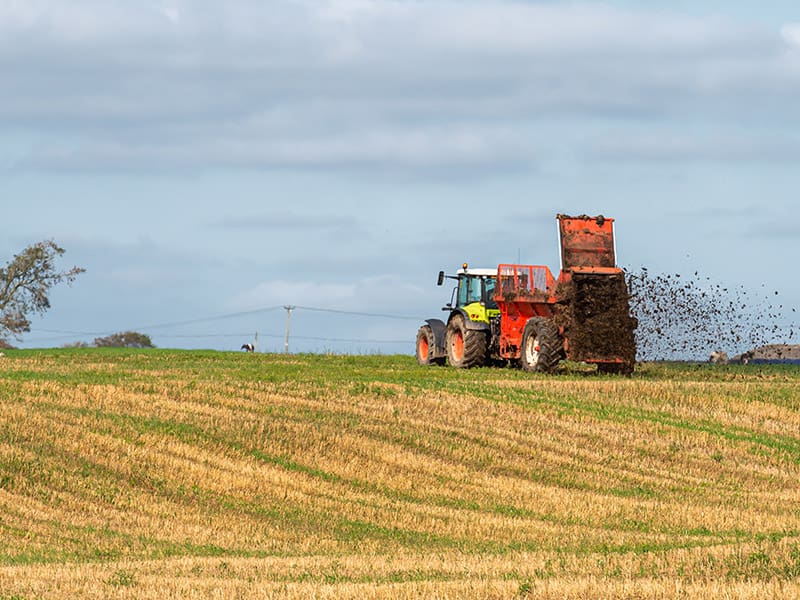Contact our offices
Main office
COLBURN
5 & 6 BAILEY COURT
COLBURN BUSINESS PARK
RICHMOND
NORTH YORKSHIRE
DL9 4QL
Estate Agency Offices are located in
BARNARD CASTLE, BOROUGHBRIDGE & RICHMOND
Residential Management Team
Our Offices
- Alnwick
01665 568310
Email Officealnwick@gscgrays.co.uk - Barnard Castle
01833 637000
Email Officebarnardcastle@gscgrays.co.uk - Boroughbridge
01423 590500
Email Officeboroughbridge@gscgrays.co.uk - Chester-Le-Street
0191 3039540
Email Officechester-le-street@gscgrays.co.uk - Colburn
01748 897630
Email Officecolburn@gscgrays.co.uk - Driffield
01377 337180
Email Officedriffield@gscgrays.co.uk - Hamsterley
01388 487000
Email Officehamsterley@gscgrays.co.uk - Hexham
01434 611565
Email Officehexham@gscgrays.co.uk - Kirkby Lonsdale
01524 880320
Email Officekirkbylonsdale@gscgrays.co.uk - Penrith
01768 597005
Email Officepenrith@gscgrays.co.uk

Muck and Mystery – is your business compliant?
The traditional view of farmyard manure, slurry and other organic fertilisers used in agricultural crop production as waste materials is changing as farm businesses recognise the benefit of harnessing these resources, particularly given the price fluctuations of inorganic fertilisers.
However, the pace of this change has been slow due to the existing confusion around using and storing organic materials compliantly, and the investment that is required to do so. With rules and regulations here to stay, farm businesses are advised to start planning for compliance, sooner rather than later.
Sectors most affected
From discussions we have had on farm, manure/slurry storage seems to be the biggest headache for most farm businesses, particularly with the 2019 Clean Air Strategy aiming to have all slurry and digestate storage facilities covered by 2027.
Two of the sectors that are most likely to be affected by increased regulation and requirement for capital investment in storage infrastructure are the Dairy and Pig sectors, both of which are subject to notorious market fluctuations.
This can make justifying large expenditure and securing funding particularly difficult, and in the case of the most recent pig sector issues, has been enough to bring forward retirement plans or simply force farmers out of the sector/industry.
Is this really a choice?
While infrastructure investment might seem prohibitive, and the rules and regulations may be confusing, do farm businesses really have a choice? With the release of the Farming Rules for Water (FRfW) in 2018 many of the rules became law, so they are here to stay. Furthermore, the chance of being inspected is more likely than ever before as the Environment Agency (EA) has recruited new team members specifically focussed on agriculture.
Whilst this may sound alarm bells amongst many of our clients, the EA are keen to stress that inspection visits are intended to help farmers understand the rules and show businesses the route to compliance.
What can you expect from an inspection?
Iain McDonell, SEO Agriculture (Yorkshire) with the EA, explains;
“Information relating to rules and regulations around nutrient management, slurry/manure storage and spreading and soil management, have been freely available online for a number of years. Our main aim at these inspections is to check farmers are compliant and understand why these rules exist. Compliance should benefit not just the environment but also their business with improved efficient use of organic materials. Our immediate aim is to provide advice and guidance initially, followed by warning letters if necessary. Ultimately, if businesses fail to engage and come back into compliance with these initial approaches, we have the power to impose civil or criminal sanctions”.
Sanctions will be unlikely for most farms but are reserved for those unwilling to engage and make changes. So how can farm business approach this issue and make the necessary changes?
Compliance approach and support
Having a sound plan in place is crucial, as is looking at the planning permission and investment on a whole farm level, taking into account the type of system, health and safety implications, and its practicality of use. Involving the EA from an early stage can be a good place to start.
Iain McDonell provides direction on how to approach compliance. “The key is knowing the regulations, which in turn is just good business management. Know which rules apply to your business specifically, and how compliant you are with those regulations. What is needed to make you compliant? How much will it cost to achieve compliance, and can the business sustain that investment? If new infrastructure is needed, don’t forget that as well as the above, you will need to ensure that any contractors you use are aware of the CIRIA construction standards they must achieve.”
For the time being, advice and funding is also available for eligible cases through Catchment Sensitive Farming and Countryside Stewardship, and NUM1 – Nutrient Management Plans funded through SFI has seen a rate increase from £589 to £652. Though round 2 of the Slurry Infrastructure Grant has now closed, round 3 is expected later in the year. Please make use of this support while it is still available.
Act now
In my opinion, how we store and spread organic materials is going to be in the spotlight for years to come and we urge our clients to begin planning as soon as possible. Investment in infrastructure does not happen overnight. Businesses that can demonstrate they have a plan and are working towards it will be seen more favourably than businesses who can’t.










